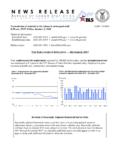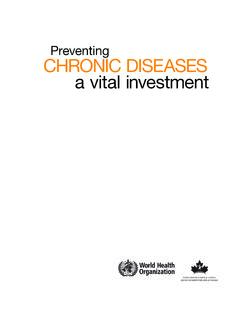Transcription of ETHICAL ISSUES in INSURANCE - Commonwealth Schools
1 ETHICAL ISSUES IN INSURANCE CRCL earning 2005 Capital Resources Corporation Page 2 of 101 DISCLOSURE This booklet is intended to provide you with accurate and useful information, ideas and applications. However, the information contained herein is subject to change through legislation or from industry practice. The sample codes presented herein were accurate as of the date this publication was created. However, any changes by the respective organizations may substantially affect the information presented. This material is presented and distributed for educational purposes only. The material does not constitute legal, accounting, or other professional advice. 2005 Capital Resources Corporation 2005 Capital Resources Corporation Page 3 of 101 INTRODUCTION "To be trusted is a greater compliment than to be loved.
2 " Some people feel the moral and ETHICAL fiber of our society is deteriorating rapidly. Others see both positive signs and disturbing signs, but feel optimistic. While there is room for a difference of opinion on this issue, most people agree on the importance of maintaining a high ETHICAL standard in a society that is to survive and prosper. Some would argue that it is even more important to maintain a high ETHICAL standard in the INSURANCE industry. What is there about the INSURANCE transaction that makes a high ETHICAL standard so important? Some of the unique aspects of the INSURANCE industry combine to create this necessity. INSURANCE is an Essential Product In our society, both individuals and businesses depend on the INSURANCE product to provide essential services and protect them from financial disaster: Health INSURANCE provides access to quality medical care.
3 Life INSURANCE proceeds support families, educate children, and assist in the perpetuation of a business. Property coverage is an integral part of every mortgage contract. Some casualty contracts (automobile and workers compensation, for example) are required by law. In modern society, INSURANCE has become a necessity. INSURANCE is a Financial Product If your travel agent does not do a professional job planning your vacation, she may ruin a week of your life. If an INSURANCE agent does not do a professional job planning for your INSURANCE needs, she may ruin you financially. INSURANCE is at the very foundation of a sound financial plan. Inadequate or inappropriate INSURANCE products can have significant impact on an individual, a family, or a business. INSURANCE is Purchased Based on Trust Although modern INSURANCE contracts are easy-to-read, it does not follow that they are easy-to-understand.
4 Few insureds read their policies; those who do, seldom understand what they are reading. Most people buy their coverage based on trust. 2005 Capital Resources Corporation Page 4 of 101 They trust the agent to recommend and procure appropriate coverage. They trust the INSURANCE company to follow through and pay a claim. Trust is an important factor in the purchase of INSURANCE . These are three of the primary reasons it is imperative that individuals, working in the INSURANCE industry, maintain a high ETHICAL standard. Ethics in the INSURANCE Industry Much is made of the poor image of the INSURANCE industry. Consumers normally do not think of INSURANCE in a positive light. In his analysis of the INSURANCE industry, Lawrence G. Brandon, CPCU, identified five weaknesses of the industry that lead to such a poor reputation.
5 Lack of leadership allows INSURANCE organizations to be driven by stockholder expectations rather than long-term goals. Poor communication about how the industry and its products are designed to work leads to misunderstandings. Lack of customer focus often leads to an adversarial position at a time the customer needs the product the most. Burdensome bureaucracies create a negative image. Unhealthy competition destroys the pricing integrity of the INSURANCE product. Ethics in Agency Ranks The same polls that show the INSURANCE industry is not to be trusted, usually show something quite different about the INSURANCE agency. Most people, when questioned, will tell you their particular agent is doing a good job in looking out for their best interests. The consuming public trusts their local agent much more than they trust the industry as a whole.
6 Dr. Solomon S. Huebner, pioneer educator who founded the American College of INSURANCE , seldom spoke of education without also speaking of ethics. The ethics brochure, used by the College today, comments on Dr. Huebner s beliefs: "To him, a professional relationship between an agent and client had to be based on sound ETHICAL principles." In applying this expert knowledge the practitioner should abandon the strictly selfish commercial view and ever keep in mind the advantage of the client. Conscientious and disinterested service proper advice and guidance is the very essence of professional conduct, and in the long run the best policy. Dr. Solomon S. Huebner, 1915 2005 Capital Resources Corporation Page 5 of 101 Dr. Huebner believed the success of the industry depended on individuals who were both knowledgeable and ETHICAL .
7 How would you feel about doing business with someone whose integrity is unquestioned, but his understanding of the business is less than adequate? How would you feel about doing business with someone extremely bright and knowledgeable, but of questionable morals? High ETHICAL standards are important in the agency of today, and, fortunately, most INSURANCE agencies meet the challenge. Although it is becoming increasingly difficult, INSURANCE agencies have been successful at attracting and retaining significant numbers of quality, educated individuals who are committed to making the INSURANCE product work for their clients. While agencies attract individuals with comparatively high ETHICAL standards, the ethics of those individuals is challenged, on a daily basis, by both the INSURANCE industry and the individual clients the agency serves.
8 From a Practical Standpoint In the October, 1996 issue of an INSURANCE E&O newsletter, the Vice President of Errors and Omissions with Utica National, Curtis M. Pearsall, identified four trends in E&O. One of trends that was mentioned is of particular interest to our discussion. "In trials in which juries perceive the INSURANCE agent has done something unethical, damages are now being awarded to the greatest extent possible. The amounts may not be labeled punitive, but the effect is the same. The plaintiff can be awarded the entire amount being sought even if the amounts would normally be questionable." Every agent, today, faces significant ETHICAL challenges. The way they respond to those challenges has never been more important. Good Ethics is Good Business Maybe it's because our industry is regulated and we are required to satisfy a continuing education requirement.
9 Or maybe it's because our trade association makes it a point to promote ETHICAL behavior. Maybe it is because many of us realize that ETHICAL practices make good business sense. Whatever the reason, agents can be proud of the fact that the INSURANCE and Financial Services industry produced impressive results in the 2001 Walker Information National Employee Benchmark Study on Integrity in the Workplace, a follow-up to their groundbreaking study first conducted in 1997 and again in 1999. The goal of this study was to collect and present information on integrity, ethics, and employee loyalty. A total of 3,592 questionnaires were mailed throughout the United States to employees in business, non-profit, and government organizations.
10 Results were tabulated from a total of 2,795 questionnaires returned in the summer of 2005 Capital Resources Corporation Page 6 of 101 2001. Listed from best to worst, the industry ranking as perceived by their employees based on workplace ethics are: 1. INSURANCE 2. Financial Services 3. Business Services 4. Wholesale Trade 5. Technology 6. Health Services 7. Communication 8. Manufacturing 9. Retail Trade 10. Transportation When asked why he thinks the INSURANCE and Financial services industries scored well in this survey, Marc Drizin, Vice President and Employee Loyalty Specialist from Walker Information, said, I believe there are two factors. First, both of these industries are regulated and have compliance requirements. The second factor is that success in these industries is dependent upon a company s ability to build a good reputation in the market place.






